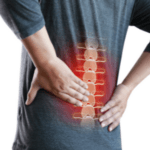The European Council and MEPs have struck a new deal to protect workers from exposure to carcinogenic and mutagenic substances.
Under the agreement between the European Parliament’s Employment Council and the European Council, diesel fumes will be added to the list of harmful substances.
The maximum amount of substance allowed in workplace air – otherwise known as exposure time limits – will also be set for eight additional cancer-causing substances.
These include trichloroethylene, 4,4-methylenedianiline, epichlorohydrine, ethylene dibromide and ethylene dichloride.
“This agreement is a successful outcome, as we managed to introduce a limit value for diesel engine exhaust emissions (DEEE), after months of negotiation,” said Rapporteur, Claude Rolin.
“In the European Union, more than 12 million workers are exposed occupationally to DEEE. This second revision of the directive gives a clear signal: monitoring occupational exposure to more and more harmful substances substantially strengthens workers’ protection.
“We need to constantly monitor this. Cancer is the leading cause of work-related death in the E.U. It is unacceptable that workers lose their lives while trying to earn a living.”
The Employment Committee Chair, Marita Ulvskog, added: “In a joint effort with the Austrian Presidency, and with the technical support of the Commission, we were able to reach this pragmatic agreement, under which eight additional cancer-causing chemicals will be covered by the Carcinogens and Mutagens Directive, including diesel exhaust.
“We can be proud of this agreement, which will prevent more than 100,000 deaths caused by cancer over the next 50 years and is a milestone on the path to delivering the European Pillar of Social Rights.”
Earlier this week, SHP Online reported that manufacturers have called for the UK to stay in the European health and safety standards regime after Brexit.
A survey by the manufacturers’ organisation EEF and safety specialists Arco revealed that 97% of companies want no immediate change in regulations after Britain leaves the EU next year.
And the European Week for Safety and Health at Work is due to start next week (22 October), which has been organised by the European Agency for Safety and Health at Work (EU-OSHA).
This year’s campaign aims to raise awareness of the risks posed by dangerous substances in the workplace, to promote a culture of prevention to eliminate or effectively manage risks, and to provide information on policy developments and relevant legislation.
Click here for more information on the new agreement.
Approaches to managing the risks associated Musculoskeletal disorders
In this episode of the Safety & Health Podcast, we hear from Matt Birtles, Principal Ergonomics Consultant at HSE’s Science and Research Centre, about the different approaches to managing the risks associated with Musculoskeletal disorders.
Matt, an ergonomics and human factors expert, shares his thoughts on why MSDs are important, the various prevalent rates across the UK, what you can do within your own organisation and the Risk Management process surrounding MSD’s.

